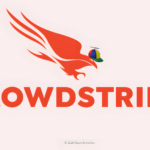
The CrowdStrike glitch that recently caused numerous systems to fail was not funny for those affected. It didn’t take long for someone to poke fun at it, including the website ClownStrike. But not everyone found it funny.
The failure of numerous computers in mid-July caused flight delays and also caused problems in hospitals and banks. Most companies were able to restore the affected computers relatively quickly (one exception was Delta Air Lines), but the damage was still great, especially financial. But as the saying goes, he who has the damage does not have to be the one to be ridiculed. And that was the case with CrowdStrike: The security company from Texas was soon exposed to a satirical account called ClownStrike He collected various jokes and videos on this topic on a page and would probably have been quickly forgotten – if CrowdStrike had not discovered him and decided to give ClownStrike a Streisand effect “gift”.
The lawyers of CrowdStrike sent a takedown against the parody site under the Digital Millennium Copyright Act (DMCA) and wanted to force it off the internet. As the IT consultant responsible for the site, David Senk, told Ars-Technica said, he asked himself from the beginning whether CrowdStrike had better things to do than to take action against a satirical site – and in a way that was clearly doomed to failure from the start. Although Senk initially used an original logo of the security provider, this is permissible in the context of satire because it is “fair use”.
“I initially set up the site just for fun,” says Senk, who says that it is “old school” and that he has always loved parody sites. Senk immediately lodged an objection with Cloudflare, but the company went unheeded and Senk was forced to switch to another host. This awakened Senk’s fighting spirit because he is now convinced that the DMCA is too business-friendly, “like so much in US law”.
In a later statement, CrowdStrike pointed out that this was “part of our proactive fraud management activities” and said that these measures were taken “to protect customers and the industry from phishing sites and malicious activities.” Senk, of course, sees things fundamentally differently and described CrowdStrike’s response as “typical corporate bullshit” that “takes no responsibility whatsoever.” At least: ClownStrike can now look forward to numerous reports – and CrowdStrike can look forward to the Streisand effect.
Alexia is the author at Research Snipers covering all technology news including Google, Apple, Android, Xiaomi, Huawei, Samsung News, and More.